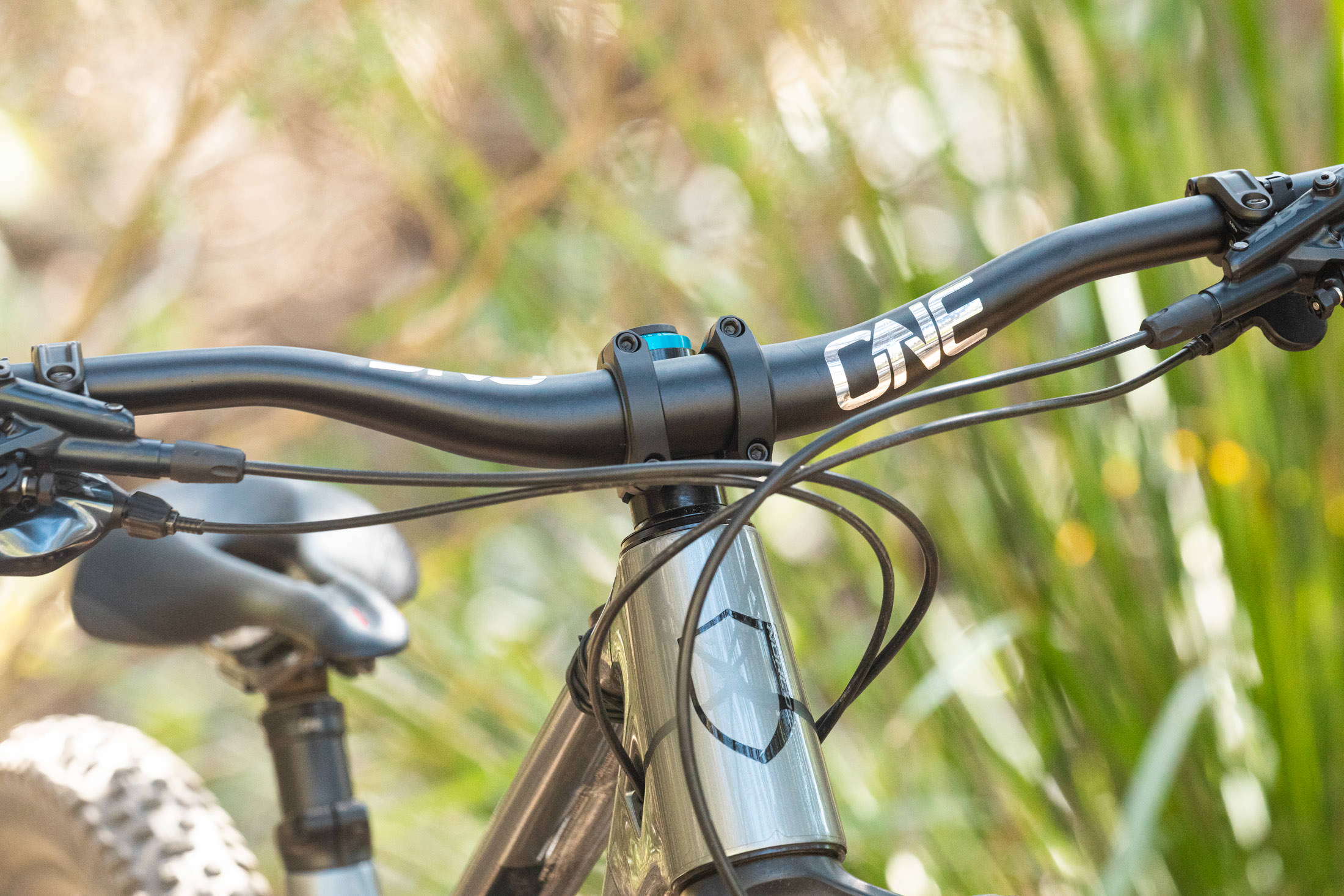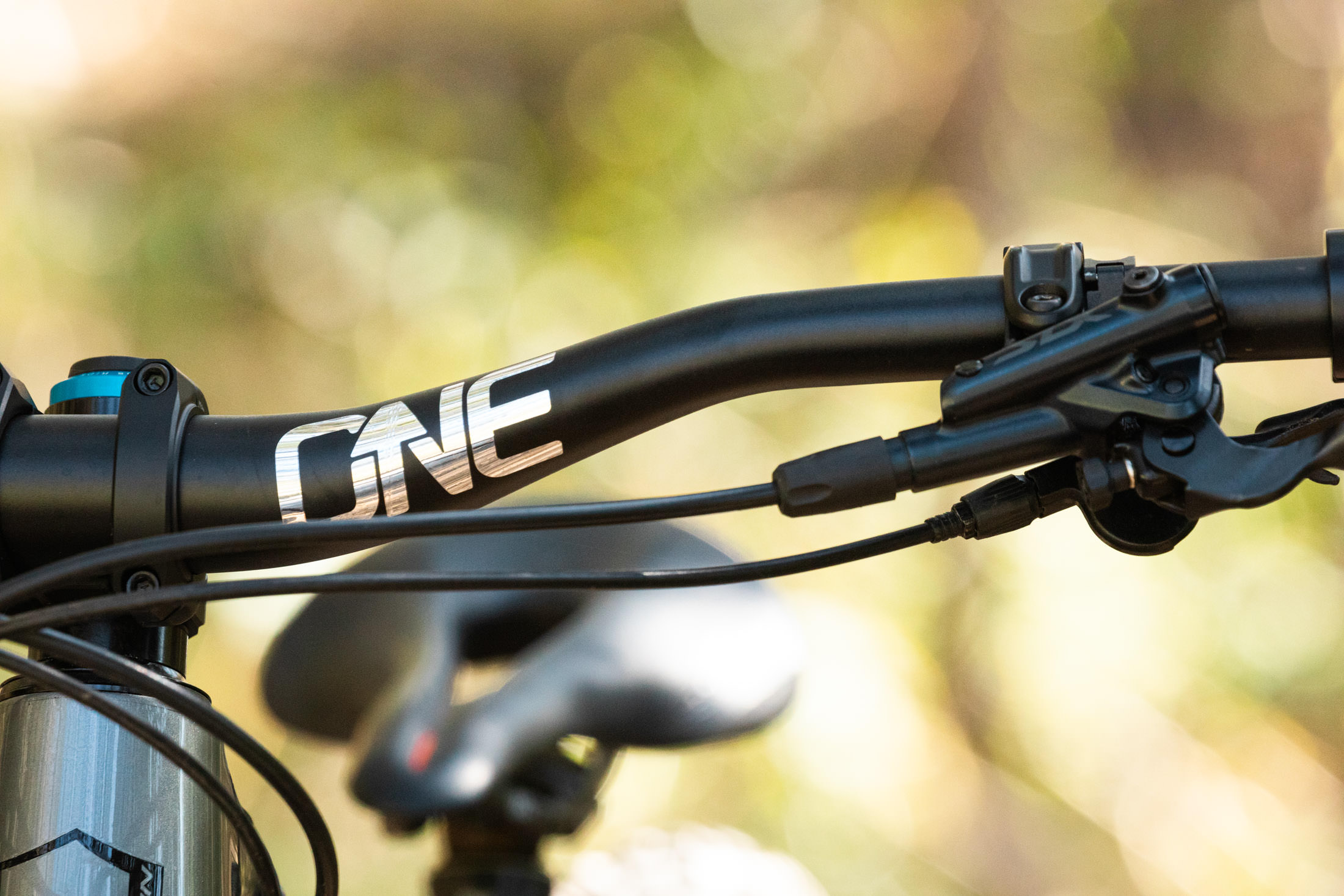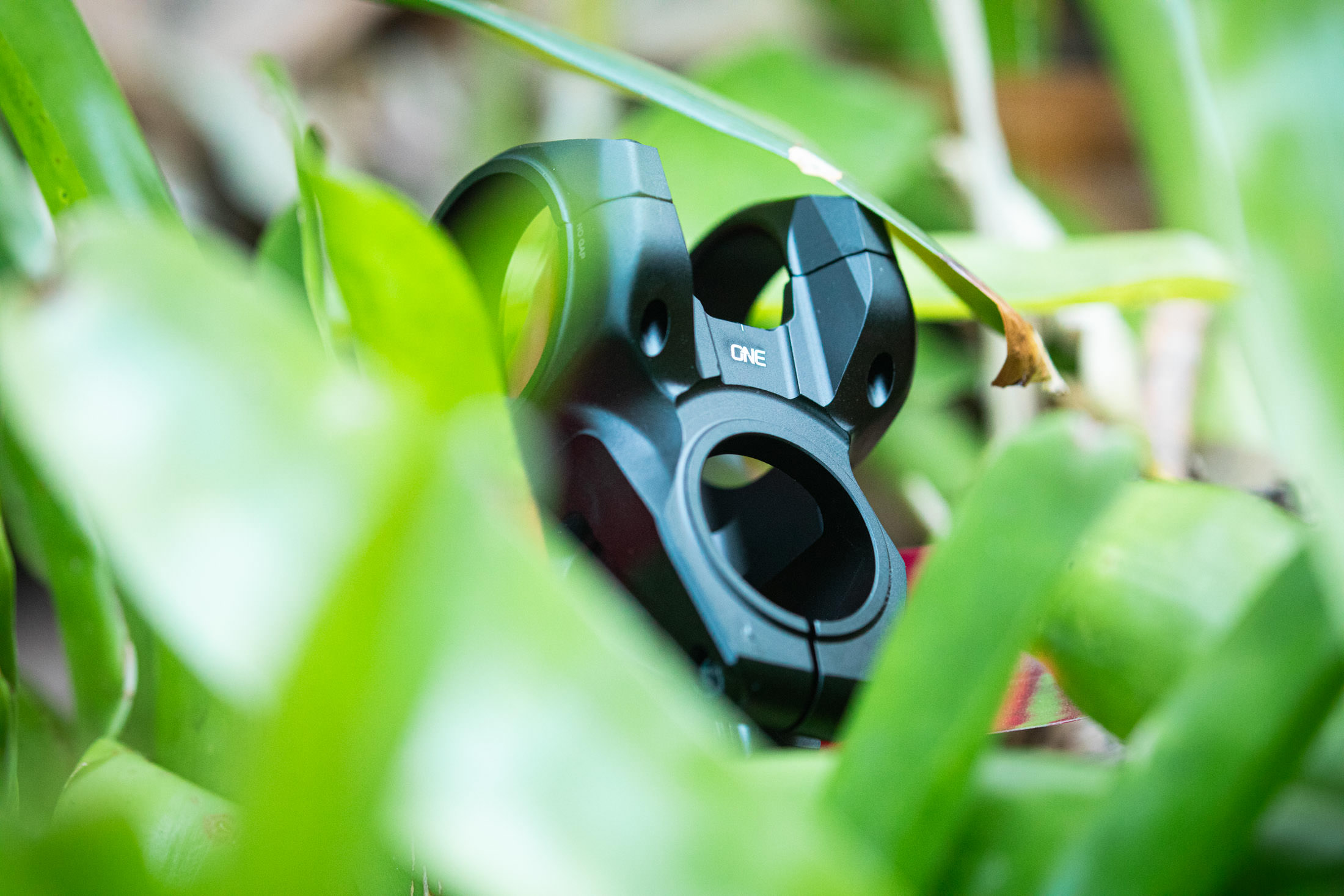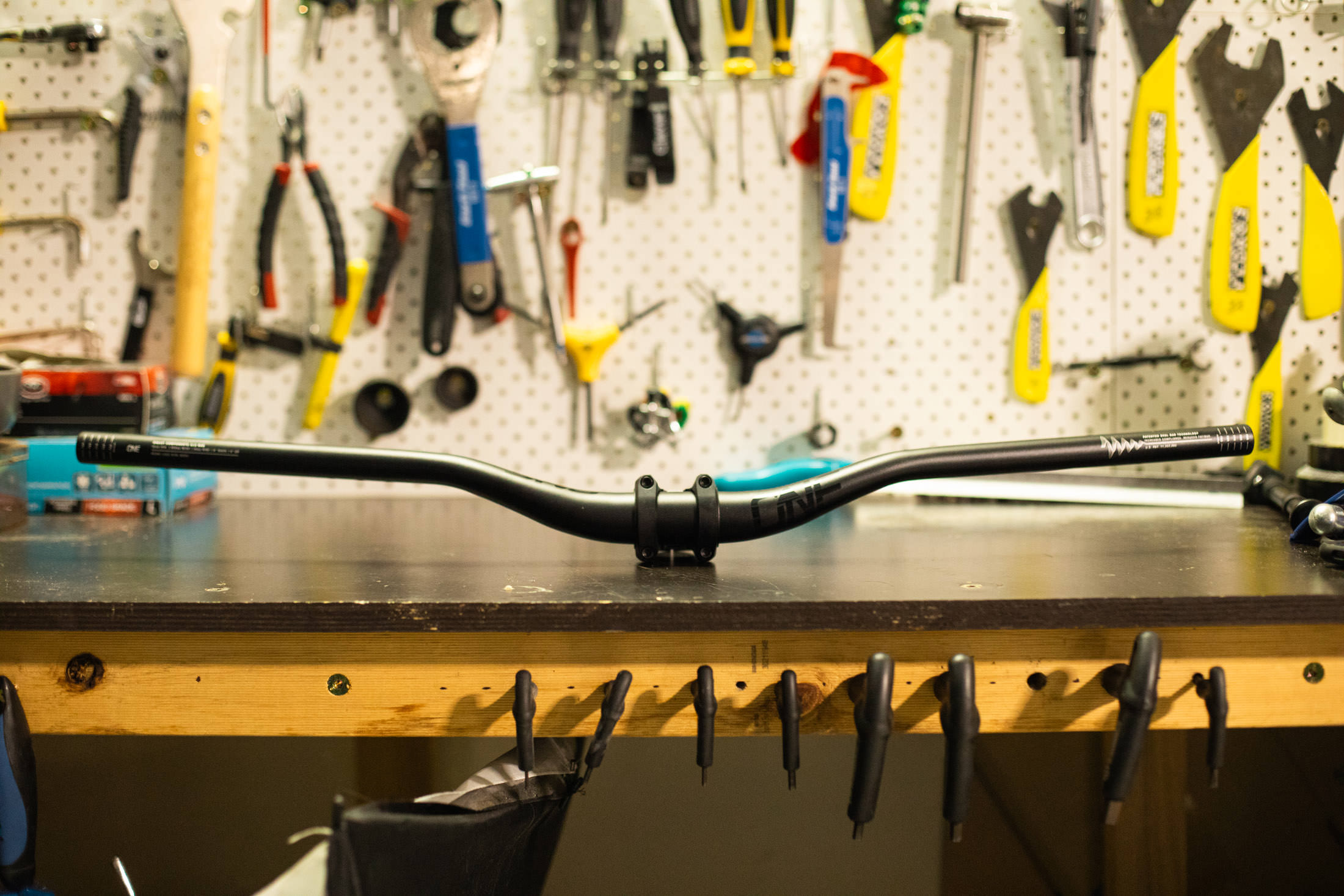35mm diameter bars have been one of those things many riders have asked ‘why’ since they were first introduced, and then shrugged, turning the focus of their ire to other things like bike parts with batteries and cables that run through headset bearings.
While upping the clamp diameter to 35mm allowed component brands to create a cockpit that often weighed less than the 31.8mm alternative and was more resistant to flex, man, oh man, the suckers are often stiff and can take a toll on your hands and worsen arm pump.

As we’ve learned over the years, not all flex is bad, and sometimes, it can even be tuned to be beneficial. OneUp used this in its approach to handlebars, starting with its aptly named Carbon Handlebar. Those crazy Canucks used the shape of the tube to tune deflection into the vertical axis to add some compliance, but not into the horizontal axis to keep the steering precision on point.
We have a few sets of these rotating around the Flow team, and the overall verdict is that they quiet down some of the chatter that would otherwise make it to your hands without feeling like there’s overcooked spaghetti bolted into your stem.
Aluminium manufacturing has come a long way, but for the most part, it still can’t quite match the complex shapes, deflection and vibration-damping characteristics of carbon fibre. Can the alloy version of OneUp’s ovalised handlebar hold a candle to the carbon spec?
One Up Alloy Bar Specs
Looking beyond the claims of vibration damping and shaping for a moment, OneUp has opted for a familiar dimension with its alloy bar. Available in 20 or 35mm rise — we have the latter — they see a 5º upsweep and 8º backsweep. Made from 7050-T76 Aluminum, they only come in an 800mm width, with hash marks denoting where to hit them with the hacksaw to achieve your preferred width.

According to our scales, they weigh 177g, and only come with stealthy black logos. OneUp does sell decal kits, which allow you to choose how you’d like your bars to look. We opted for the silver decals to match the grey Optic — though looking now, this combo is a bit jazzy.
At the clamp, the bars also have reference markings for bar roll and a centre line.
OneUp Alloy Bars on the trail
I rode these bars back to back with a set of Norco-branded alloy bars, both cut to 780mm. They aren’t a night and day difference until you hit something hard enough to make the bars flex. It’s only a subtle amount of deflection that happens, but it’s enough to dull the sharp sting off that square edge. To be frank, they feel more or less like a carbon bar, however, there is still a bit of buzz that gets to your palms.
My hands are only weathered by the rigours of a keyboard these days, and so arm pump and hand fatigue are something I contend with on long rides. And while I can’t say that the OneUp Bars won the war on arm pump, my typing fingers felt significantly fresher after four hours spent on these carefully shaped bars than with the round gauge alternative.


With the dad-bod now pushing 72kg, I’m not what anyone would describe as a large rider and even with the bike torqued on edge, through brake bumps and rocks, there is no vagueness or lack of steering precision here.
Priced at $147 AUD, they’re at parity with similar premium alloy options from Burgtec and Deity. But the OneUp bars do bring some added compliance to the table and cost $107 AUD less than their carbon counterpart.
One Up Stem

When OneUp sent out the alloy bar, they also chucked a 42mm stem in the box. While this may sound like an oddly specific length, the idea is to closer match the offset of your fork, which is typically in the 42-44mm range. Matching stem length with fork offset is claimed to improve the overall handling, with the theory being that it provides a more neutral feel to the steering.
Given that it replaced a 45mm stem, the effect on handling is barely perceivable if at all, and it is respectably light, tipping the scales at 164g. With angular machined edges, it definitely looks a bit cooler too.
If we’re honest, in this day and age, stems are largely stems, and this one does what it says on the tin.




















